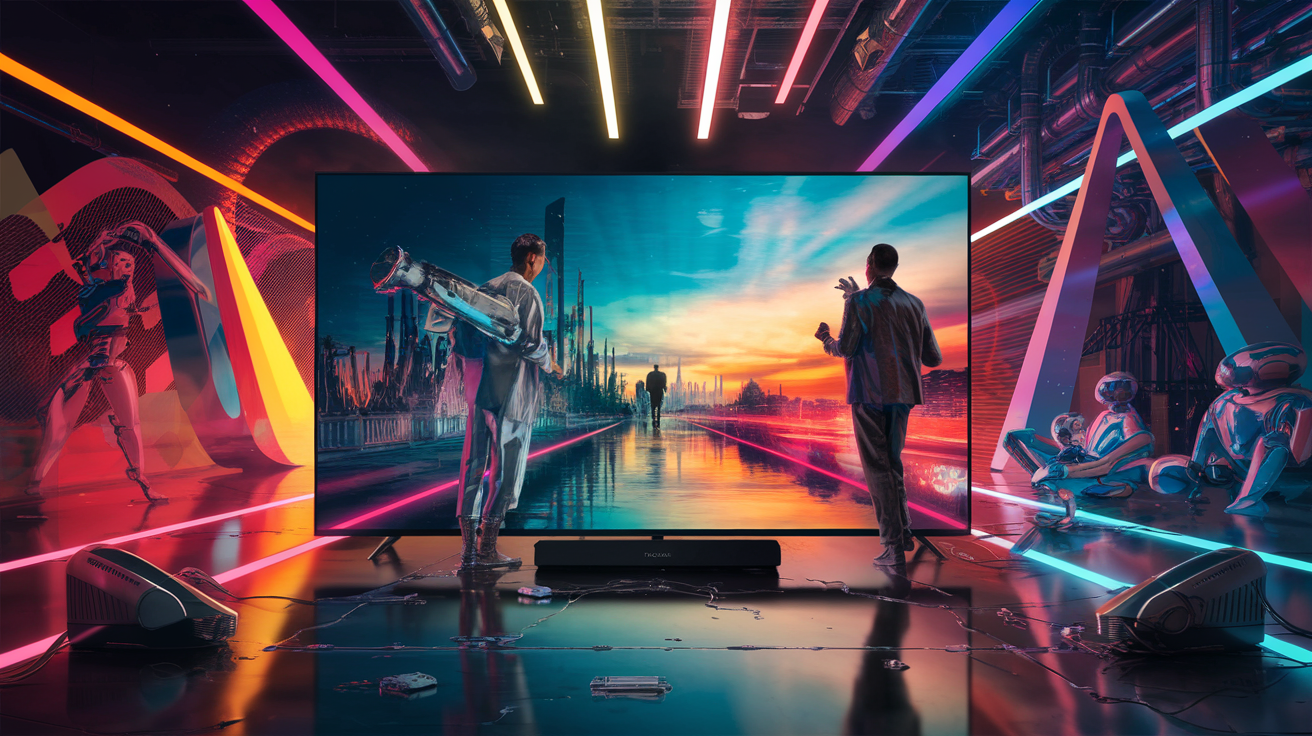

In a groundbreaking announcement at CES 2025, held in Las Vegas, Google introduced the world to its latest advancement in TV technology—an AI-powered feature designed to enhance news consumption. This new addition to Google's TV operating system leverages the capabilities of Gemini, their AI assistant, to offer users concise summaries of significant news stories. The development is set to transform how audiences engage with news content.
Harnessing the power of AI, Google's Gemini is at the heart of this innovation. Users can simply prompt the assistant to activate their "News Brief," a feature that intelligently compiles and summarizes news stories from reputable sources across the internet and from YouTube video headlines provided by trusted news channels. This feature provides a succinct, overview of the day's major events, presenting an efficient alternative to traditional news viewing.
“Google’s News Brief marks a daring move into AI-powered news summaries,” noted a Google product manager, emphasizing the assistant’s capability to extract information from a wide array of online sources.
As the frontier of AI-driven news summaries expands, it brings with it inherent challenges. Companies like OpenAI and Microsoft have faced legal issues related to the licensing and attribution of news content. Google's foray into this arena symbolizes both its commitment to innovation and its readiness to navigate these complex waters.
Incorporating features that rectify AI misinterpretations—commonly known in the industry as 'hallucinations'—remains a critical focus. Past instances, such as Apple's mischaracterization of a BBC headline and Google's previous AI missteps, highlight the importance of accuracy in AI-generated content. The continuous development and cautious application of Gemini are vital as Google endeavors to enhance accuracy and reliability in AI news dissemination.
The AI news summary feature aligns with Google’s overarching ambition to make television viewing a more interactive and insightful experience. Future iterations of Google TVs are expected to include sensors that detect user presence, further integrating personalized interaction with viewing habits.
Adding to the user experience, Gemini will also provide AI summaries for a variety of content, including shows and movies. This enhances the user’s ability to engage with entertainment in a personalized and informed manner.
Google aims to roll out these new capabilities for both new and existing Google TV models by the conclusion of 2025, signaling a significant shift towards AI-driven media engagement in the home. This advancement not only positions Google as a frontrunner in AI technology but also sets a new standard for how AI can be seamlessly integrated into daily life.
As CES 2025 unfolds, Jengu.ai continues to track and report on the transformative role of AI in our everyday experiences. Google’s AI-powered TV news summaries exemplify the profound impact that artificial intelligence is poised to have in the realm of media and beyond. As industry experts, Jengu.ai recognizes the potential these developments have in reshaping content consumption and anticipates further innovations in this rapidly evolving space.
```